WUHAN, China: The COVID-19 pandemic, which originated in Wuhan, has become a serious public health challenge of international concern. Researchers from Wuhan University School and Hospital of Stomatology have now released a paper which includes a number of recommendations for dental practitioners and dental students on how to deal with the virus SARS-CoV-2 that poses emerging and future challenges for dentistry.
Infection control measures are necessary to prevent the virus from spreading further and to help control the pandemic. Owing to the characteristics of dental settings, the risk of cross infection can be high between patients and dental practitioners. For dental practices and hospitals in areas that are (potentially) affected by COVID-19, strict and effective infection control protocols are urgently needed. This article, based on experience and relevant guidelines and research, introduces essential knowledge about COVID-19 and nosocomial infection in dental settings and provides recommended management protocols for dental practitioners and students in (potentially) affected areas.
Recommendations for clinical practice include the following:
- During the outbreak of COVID-19, dental clinics are recommended to establish pre-check triages to measure and record the temperature of every staff member and patient as a routine procedure.
- Preoperative antimicrobial mouth rinsing could reduce the number of microbes in the oral cavity.
- Dental emergencies can occur and exacerbate in a short period and, therefore, need immediate treatment. Dental dams and high-volume saliva ejectors can help minimise aerosol or spatter in dental procedures. The treatment planning of tooth fracture, luxation or avulsion is dependent on the age of the patient, the traumatic severity of dental tissue, the development of the apex and the duration of tooth avulsion.
- In the regions that are heavily affected by COVID-19, patients waiting in dental clinics should also be provided with medical masks. If aerosol-producing procedures are unavoidable, dental practitioners need to wear gowns and facial shields or goggles.
The paper also listed recommendations for dental education:
- During the outbreak period, online lectures, case studies and problem-based learning tutorials should be adopted to avoid unnecessary aggregation of people and the associated risk of infection.
- Schools should encourage students to engage in self-learning, to make full use of online resources and to learn about the latest academic developments.
- During this period, it is easy for students to be affected by disease-associated fear and pressure; dental schools should be prepared to provide psychological services to those who need them.
“For dental practices and hospitals in countries/regions that are (potentially) affected with COVID-19, strict and effective infection control protocols are urgently needed,” said corresponding author Prof. Zhuan Bian in a press statement. “Dentists should take strict personal protection measures and avoid or minimise operations that can produce droplets or aerosols. Four-handed technique is beneficial for controlling infection. The use of saliva ejectors with low volume or high volume can reduce the production of droplets and aerosols.”
The authors called for further discussion and research on how to improve current infection control strategies and how to respond to similar contagious diseases in the future. According to the World Health Organization by 19 March 2020, COVID-19 had been diagnosed in 166 countries, totalling 207,855 laboratory-confirmed cases and 8,648 deaths.
The study, titled “Coronavirus disease 2019 (COVID-19): Emerging and future challenges for dental and oral medicine”, was published online on 12 March 2020 in the Journal of Dental Research, ahead of inclusion in an issue.
Tags:
A passionate dental practitioner with a special interest in endodontics and conservative aesthetic dentistry and a well-known speaker, Dr Enzo Attanasio has...
BRUSSELS, Belgium: An ongoing and open exchange between oral health providers and family physicians can effectively improve the quality of their patients’...
COLOGNE, Germany: The future of the dental industry begins with the skilled professionals who are completing their training today. The International Dental ...
WASHINGTON, US: Covering everything, including composite fillings and disposable suction tips, plastics are woven into all aspects of modern dental care. ...
CHICAGO, US: The American Dental Association (ADA) Science and Research Institute and the University of Pittsburgh School of Dental Medicine in the US have ...
SYDNEY, Australia: Aboriginal people and Torres Strait Islanders who were, as children, forcibly taken from their families between 1910 and 1970 are known ...
SAN JOSE, Calif., U.S.: Align Technology has reported its highest ever 12-month earnings but has begun 2020 with a degree of uncertainty. It says that the ...
AMMAN, Jordan: The rite of passage through university education into the professional world is one that for many students is fraught with tension. ...
NEW YORK, U.S.: The New York University College of Dentistry (NYU Dentistry) is the third U.S. dental school to acquire, install and use devices for ...
AMMAN, Jordan: Dental and facial aesthetics do more than shape a smile; they can influence how individuals perform socially and academically, according to ...
Live webinar
Tue. 24 February 2026
1:00 pm EST (New York)
Prof. Dr. Markus B. Hürzeler
Live webinar
Tue. 24 February 2026
3:00 pm EST (New York)
Prof. Dr. Marcel A. Wainwright DDS, PhD
Live webinar
Wed. 25 February 2026
11:00 am EST (New York)
Prof. Dr. Daniel Edelhoff
Live webinar
Wed. 25 February 2026
1:00 pm EST (New York)
Live webinar
Wed. 25 February 2026
8:00 pm EST (New York)
Live webinar
Tue. 3 March 2026
11:00 am EST (New York)
Dr. Omar Lugo Cirujano Maxilofacial
Live webinar
Tue. 3 March 2026
8:00 pm EST (New York)
Dr. Vasiliki Maseli DDS, MS, EdM



 Austria / Österreich
Austria / Österreich
 Bosnia and Herzegovina / Босна и Херцеговина
Bosnia and Herzegovina / Босна и Херцеговина
 Bulgaria / България
Bulgaria / България
 Croatia / Hrvatska
Croatia / Hrvatska
 Czech Republic & Slovakia / Česká republika & Slovensko
Czech Republic & Slovakia / Česká republika & Slovensko
 France / France
France / France
 Germany / Deutschland
Germany / Deutschland
 Greece / ΕΛΛΑΔΑ
Greece / ΕΛΛΑΔΑ
 Hungary / Hungary
Hungary / Hungary
 Italy / Italia
Italy / Italia
 Netherlands / Nederland
Netherlands / Nederland
 Nordic / Nordic
Nordic / Nordic
 Poland / Polska
Poland / Polska
 Portugal / Portugal
Portugal / Portugal
 Romania & Moldova / România & Moldova
Romania & Moldova / România & Moldova
 Slovenia / Slovenija
Slovenia / Slovenija
 Serbia & Montenegro / Србија и Црна Гора
Serbia & Montenegro / Србија и Црна Гора
 Spain / España
Spain / España
 Switzerland / Schweiz
Switzerland / Schweiz
 Turkey / Türkiye
Turkey / Türkiye
 UK & Ireland / UK & Ireland
UK & Ireland / UK & Ireland
 Brazil / Brasil
Brazil / Brasil
 Canada / Canada
Canada / Canada
 Latin America / Latinoamérica
Latin America / Latinoamérica
 USA / USA
USA / USA
 China / 中国
China / 中国
 India / भारत गणराज्य
India / भारत गणराज्य
 Pakistan / Pākistān
Pakistan / Pākistān
 Vietnam / Việt Nam
Vietnam / Việt Nam
 ASEAN / ASEAN
ASEAN / ASEAN
 Israel / מְדִינַת יִשְׂרָאֵל
Israel / מְדִינַת יִשְׂרָאֵל
 Algeria, Morocco & Tunisia / الجزائر والمغرب وتونس
Algeria, Morocco & Tunisia / الجزائر والمغرب وتونس
 Middle East / Middle East
Middle East / Middle East


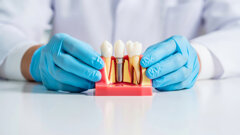
























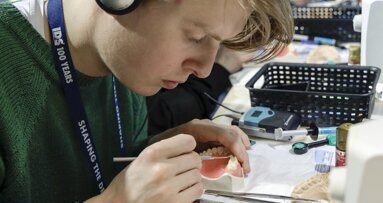

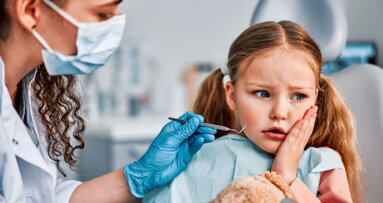
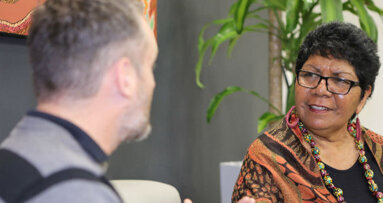


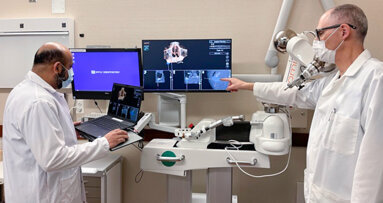










To post a reply please login or register